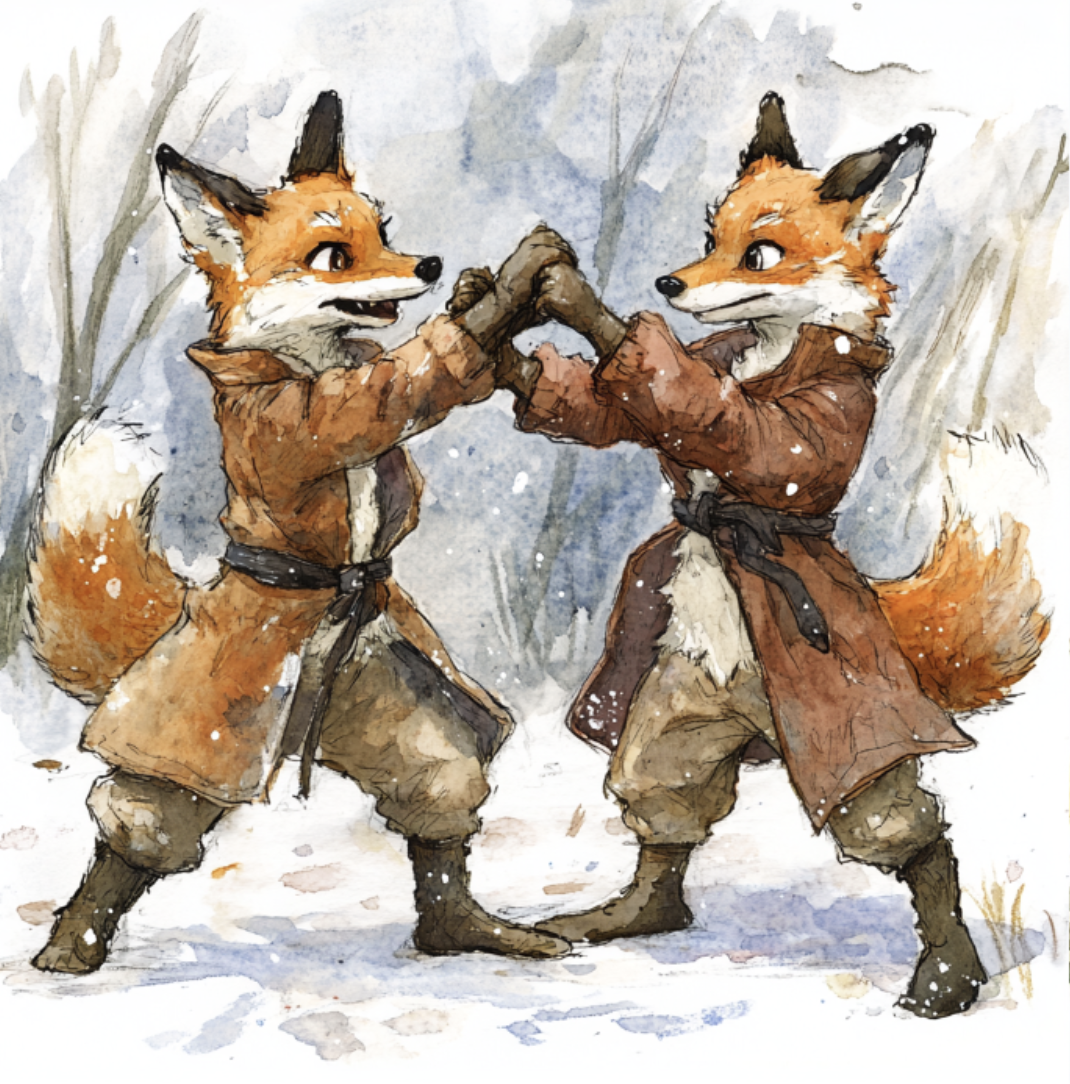How to Avoid a Critical Hit in Conversations: Navigating Tone, Timing, and Word Choice Like a Pro
Conversations can be like a dance and knowing how to move and adapt is key to avoiding problems!
In every game, whether you're slaying monsters in an RPG or facing off in a heated PvP match, one wrong move can lead to a critical hit — and when it comes to conversations, the same principle applies. A single poorly chosen word, a misjudged tone, or bad timing can leave you reeling, just like a critical hit from an opponent. The key to winning conversations lies in mastering the skills of tone, timing, and word choice, allowing you to navigate tricky discussions without getting hit too hard.
1. Tone: Your Character’s Voice in Battle
Think of tone as your character's voice. It's how your words come across, whether you're wielding diplomacy like a seasoned bard or throwing shade like a rogue with a sharp tongue. A negative or hostile tone can easily set off the people you're talking to, even if your intentions are harmless. Imagine you’re in the middle of a boss fight: if your character’s voice is grating and aggressive, even your allies might think you’re attacking them. In conversation, a defensive or condescending tone can land you in hot water quickly.
How to Avoid a Critical Hit:
Stay aware of your emotional state. Just like you wouldn't charge into a boss fight without prepping, don't dive into a conversation when you're frustrated or angry. Take a moment to breathe and reset.
Watch for tone indicators. If you’re texting, be mindful of punctuation (excessive exclamation points, capital letters, etc.), as it can come across as shouting. In face-to-face conversations, pay attention to body language and voice modulation. A calm, steady voice creates a safer space for dialogue.
Consider the other player's emotional health. Are they in a vulnerable state? Are they looking for reassurance? Adjust your tone to meet them where they’re at. Being empathetic can turn a potential conflict into a cooperative experience.
2. Timing: When to Strike, When to Wait
In any game, knowing when to use your skills is critical. You wouldn’t use a healing potion mid-fight if you’re at full health, and in conversations, timing plays a similarly crucial role. Jumping into a conversation too soon, or interrupting someone while they're making a point, can derail the flow and leave you with an emotional backlash that feels like a critical hit to your relationship.
How to Avoid a Critical Hit:
Don’t interrupt mid-attack. Just like waiting for the right moment to strike, make sure the other person has finished speaking before you respond. Interrupting can come off as dismissive or combative, making it harder to resolve issues peacefully.
Take your time before responding. If you need to think, don’t be afraid to pause for a moment. In a game, rushing into a decision without planning can lead to mistakes. In conversation, a brief pause can give you a moment to craft a thoughtful reply and avoid saying something you might regret.
Recognize when to deflect. Sometimes, timing means knowing when to let something slide for the sake of the bigger picture. Is the disagreement worth engaging in now, or is this a fight you can defer for later when everyone’s more level-headed?
3. Word Choice: The Right Weapon for the Job
In gaming, weapons have varying damage output. The same is true in conversation: your words are the weapons you wield, and each one can have a different impact depending on the situation. A well-timed compliment or a carefully chosen phrase can heal a tense situation, but an insult or harsh criticism can deal damage that might take a long time to repair.
How to Avoid a Critical Hit:
Avoid the “low blow” attacks. In competitive games, it’s tempting to go for the cheap shot when an opponent is down. In conversations, these “low blow” comments — like bringing up past mistakes or making personal attacks — can deal devastating emotional damage. Stick to the issue at hand, and avoid attacking the person.
Use positive framing. Just like you wouldn’t wield a broken sword against a powerful foe, avoid using negative language that could escalate the situation. Instead of saying, “You always do this,” try “I feel hurt when this happens,” which focuses on how you are affected rather than blaming the other person.
Be specific. In games, aiming for the weak spot makes all the difference. The same applies to conversations. Vague criticisms leave room for misunderstandings. If you need to address an issue, be specific, and explain the situation clearly without ambiguity.
4. Avoiding the “Crit” through the Power of Empathy
Imagine you’re in a multiplayer raid, and the success of the mission depends on every player working together. When everyone’s aware of each other’s strengths, weaknesses, and needs, the team can coordinate their efforts and avoid making costly mistakes. In conversation, empathy functions like the ultimate team buff: it ensures that your words land with understanding, not hostility.
How to Avoid a Critical Hit:
Listen as much as you speak. Conversations are a two-way street. Like in a cooperative raid, it's important to understand your teammate’s (or conversation partner’s) perspective. Active listening allows you to respond thoughtfully, showing you’re not just waiting for your turn to speak but engaging in the exchange.
Ask clarifying questions. If you’re not sure about something or if there’s ambiguity, don’t hesitate to ask for clarification. A well-placed “Can you explain what you mean?” or “What do you need from me right now?” can prevent misunderstandings from escalating into all-out battles.
Validate their feelings. Just as you wouldn’t ignore a teammate’s call for help in a critical moment, don’t dismiss your conversational partner’s emotions. Validating their feelings — saying things like “I can see why you’d feel that way” — shows respect and helps defuse potential conflict.
5. Final Thoughts: Navigating the Battlefield of Conversations
The world of conversation is full of potential pitfalls and traps, much like an RPG filled with hostile creatures, hidden dangers, and critical hits waiting to happen. But with the right balance of tone, timing, and word choice, you can avoid disastrous outcomes and navigate even the trickiest discussions like a seasoned pro. Think of each conversation as an opportunity to level up your communication skills, unlock better relationships, and avoid being caught off guard by that devastating critical hit.
Remember: Every conversation is a new quest, and with the right approach, you’re guaranteed to walk away victorious.


